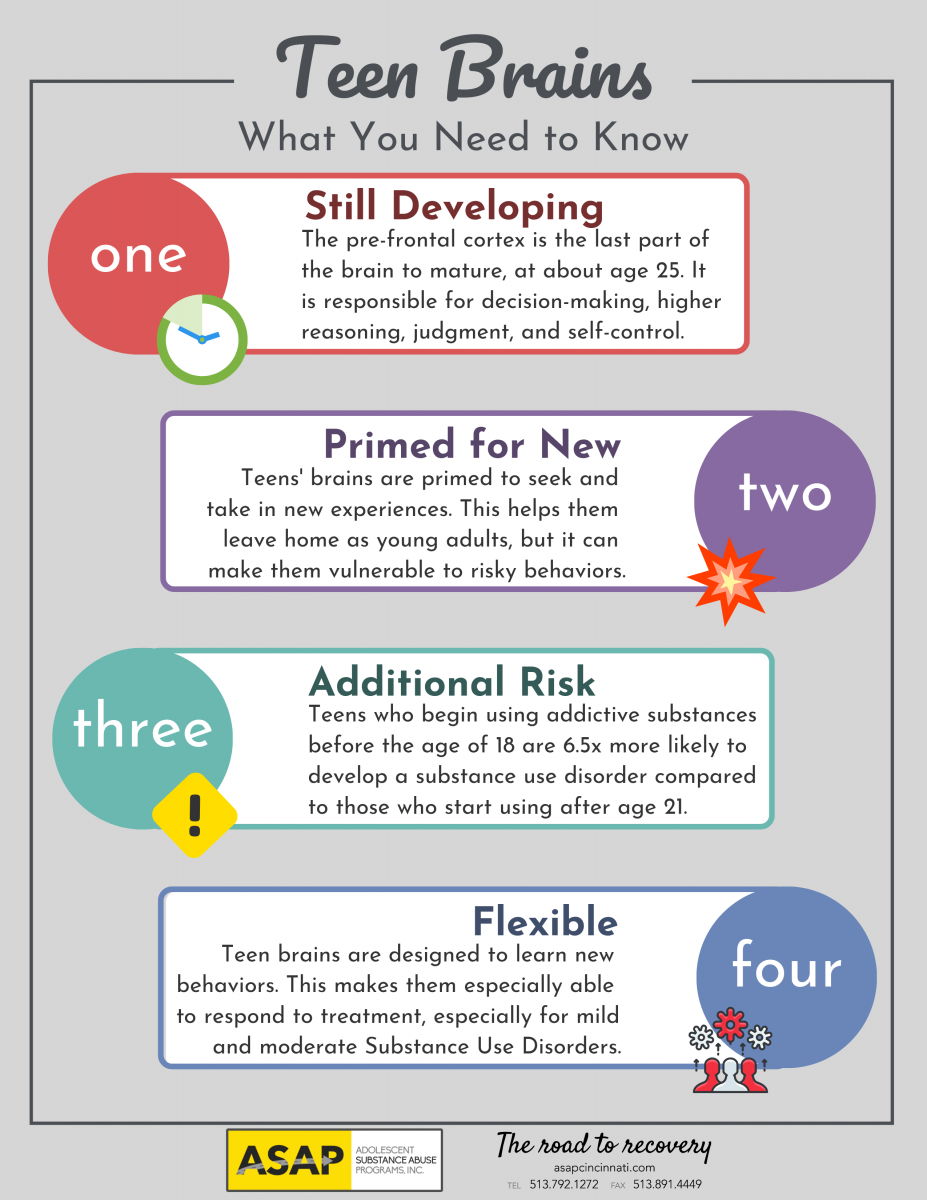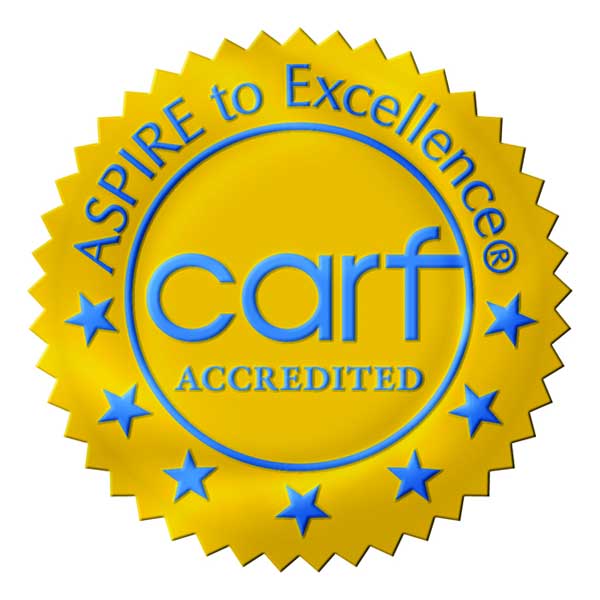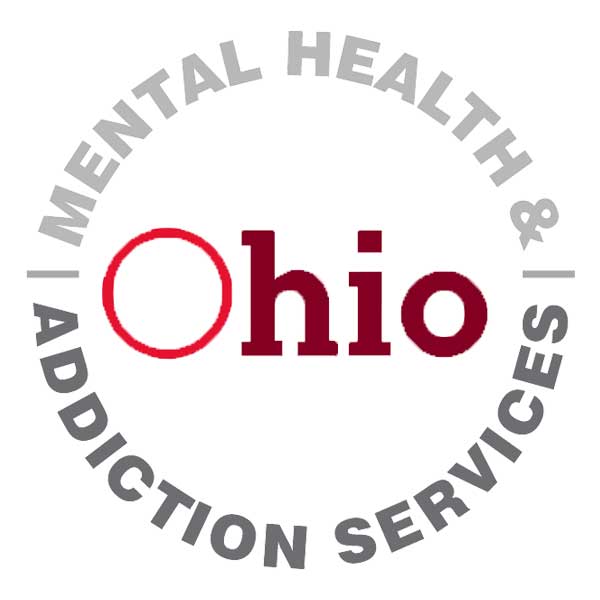GET HELP NOW
513.792.1272
Your Teenager’s Developing Brain

Your teenager’s developing brain is going through a process that will last into early adulthood.
As a result, teenagers think differently than adults do. Additionally, alcohol and other drug (AOD) use is much more dangerous if you start using during your teen years compared to beginning use as an adult.
Facts About a Teenager’s Developing Brain
The brain is most susceptible to mental illness during the teenage years.
We know that most adults with mental illness began having symptoms of anxiety disorders, depression, addictions, and eating disorders, during the teenage years. If you notice any signs of difficulty, don’t just assume your child is having typical teenage feelings. It’s always better to seek treatment when a problem is beginning, rather than waiting until it is more difficult to treat.
During adolescence (12-19 years old) the brain is going through massive changes.
The synapses in the brain are trimmed back and functions are beginning to consolidate. The latest research shows that this process may continue into the mid 20s. As a result, during adolescence, parents can observe increased impulsivity and risk-taking behavior.
The teenage brain works differently than the adult brain when it makes decisions or solves problems. Guided more by the emotional and reactive amygdala, the brain at this developmental stage does far less thinking and too much reacting. Research has also shown that exposure to drugs and alcohol during the teen years can change or delay these developments.
Crucial parts of the brain, the frontal lobes, are not fully connected.
A teenager’s ability to understand the consequences of behavior happens more slowly compared to average adults. Additionally, seeking approval from peers becomes a major driving factor in a teen’s life. This occurs while they are attempting to become more independent from their parents.
The social connections made by the brain seem to change during adolescence.
This includes becoming more self-aware while becoming less aware of the impact of your behaviors on others. You may remember as a teenager, the feeling of being self-conscious when you become embarrassed by a pimple, your parents’ behavior, or wearing the wrong outfit to a social situation. Teens often feel disproportionately devastated by what adults consider to be minor slights and rejections. Hence, teens are not yet able to have the insight necessary to think about the effects of their behavior.
As a result of their developing brain, teenagers are more vulnerable to substance use disorders.
Their brain chemistry is responsive to everything in their environment. At this age, the brain forms new connections in response to the environment. A potent psychoactive drug like alcohol or cannabis suddenly becomes available and it taps into the more robust habit-forming ability of the adolescent brain.
Teens’ Brains are Different From Adults’ Brains
Studies have shown that brains continue to mature and develop throughout adolescence and into early adulthood. You may have noticed that you or friends seemed to settle into adulthood around 25 years old. Brain research backs up this common observation. Brains do not become adult-like until around the age of 25 (or even a little bit later).
Based on the stage of their brain development, adolescents are more likely to:
- act impulsively
- misread or misinterpret social cues and emotions
- become involved in accidents of all kinds
- participate in dangerous or risky behavior
Adolescents are less likely to:
- think before they act
- consider consequences
- change dangerous or inappropriate behaviors unless there are consequences
Teens are still able to make good decisions or tell the difference between right and wrong. Their brain development does not impede this ability. Teens learn from consequences. Adults should hold teens accountable for good and bad decisions that they make. Our brains tend to learn more from correcting mistakes than from doing things right the first time. However, this learning can only occur when we work through the mistake and correct it. If a child does not face consequences from the mistakes, it can make the learning process even harder.
When adults understand teens’ developing brains, they can be more mindful of their interactions with troubled teens. This knowledge can improve how we help teens overcome their difficulties.
Teens who are experiencing issues with substances can be helped in a variety of ways. Adolescent Substance Abuse Programs encourages concerned families to seek an assessment to help determine the right path forward. Call 513.792.1272 to get started on the road to recovery today!
RELATED POSTS
ASAP is Cincinnati's premiere outpatient treatment center for teenagers and their families struggling with substance abuse and mental health problems.
SUBSCRIBE
Enter your email address to receive news and information from ASAP.












